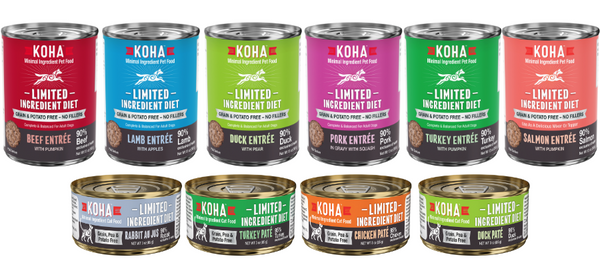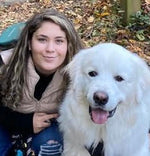
What You Need to Know About Food Allergies and Your Pet
Is your dog or cat itching like crazy? How about barfing up their food after every other meal? If your furry friend is struggling, it can be stressful to figure out “why”. If these symptoms just won’t go away, you may need to consider that your pet may be suffering from a food allergy.
Dog and cat food allergies are stressful for any pet parent to deal with. That’s why we’re giving you all of the information you need to know to properly identify and treat your pet’s food allergies.
What are the Signs of Food Allergies in Dogs and Cats?
Food allergies in cats and dogs can manifest in many different ways. Because a food allergy is an immune response, the symptoms can extend beyond just an upset stomach and loose stool. Some common cat and dog food allergy symptoms include:
- Itching
- Frequent licking of paws, etc.
- Red, inflamed skin
- Vomiting
- Diarrhea
If your pet is struggling with any of the above symptoms, it’s important to distinguish that they have a true food allergy, rather than a food sensitivity or an environmental allergy. Food sensitivities typically won’t elicit an immune response - the symptoms are also typically less severe. Likewise, an environmental allergy usually won’t result in any unusual gastrointestinal response. It’s important to visit your veterinarian, so they can rule out other conditions that could cause your pet’s symptoms.
No matter the cause, there’s no doubt that food allergies and sensitivities are no fun to deal with.
How Do I Test for Cat or Dog Food Allergies?
If you suspect your furry friend has a food allergy, your first instinct will likely be to determine what the allergy is. Unfortunately, allergy tests may not identify exactly what your pet is allergic to. The first step after visiting the vet is to begin eliminating potential allergens from your pet’s diet. The most common dog food allergies and cat food allergies are proteins from beef, dairy, chicken, and wheat (Mueller, Olivry, & Prélaud, 2016).
In an elimination diet, you’ll feed your pet a diet made from simple, limited ingredients with one protein and one carbohydrate source. You can then start to pinpoint the exact culprits of the allergy by adding in foods until your pet experiences a problem. Finding the best cat or best dog food for allergies will involve some trial and error, so be patient with your pet and yourself.
What is the Best Dog or Best Cat Food for Allergies?
The cause of a food allergy is different for each pet - that’s why there’s no one solution. That being said, the safest option for all pets is going to be a true limited ingredient diet. That’s because the fewer ingredients there are, the less likely the food will cause a reaction or problem.
Since most dog and cat food allergies are connected to the protein source in their pet food, novel protein diets help to provide a safe source of complete and balanced nutrition. Novel proteins are proteins not commonly found in pet foods - such as rabbit, duck, and lamb - and therefore are less likely to cause the immune response associated with food allergies. Recipes like lamb dog food and rabbit cat food are some of the best dog and best cat food for allergies, respectively.
KOHA Pet Food recipes are a safe choice for pets struggling with a food allergy. All of our recipes are limited ingredient, which reduces the risk of exposure to fillers or unnecessary ingredients that can be the source of allergies. And because they are wet food, it is much easier for pets to digest. If you don’t want to switch from dry food altogether, KOHA wet food can also be used as a topper to enhance your pet’s meal. We also offer a variety of single meat options, which is crucial when one (or more) proteins are the source of your pal’s allergy.
Food allergies can be a real drag for our dogs, cats, and families. Fortunately, there are many food options that can help minimize the risk and help your pet thrive. Always consult with your veterinarian before making any diet changes to help with food allergies or sensitivities.
If you're looking for a novel protein dog food or cat food for food allergies, KOHA Limited Ingredient Diet recipes are a great place to start. Our entrées have only one meat per recipe, include novel protein options, and are all minimal ingredient with no fillers.

Table of Contents
- Choosing a selection results in a full page refresh.
- Press the space key then arrow keys to make a selection.




